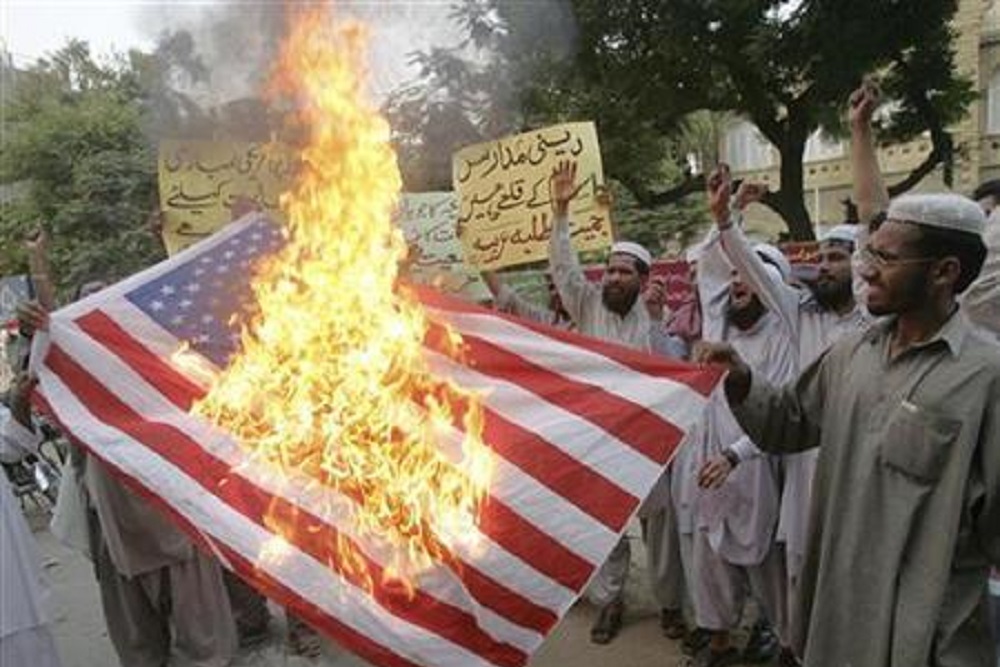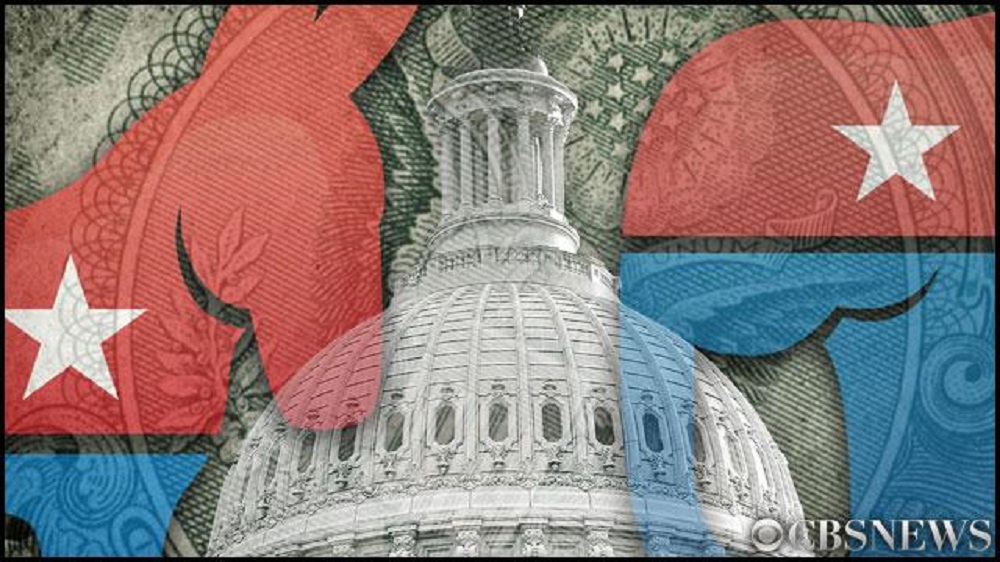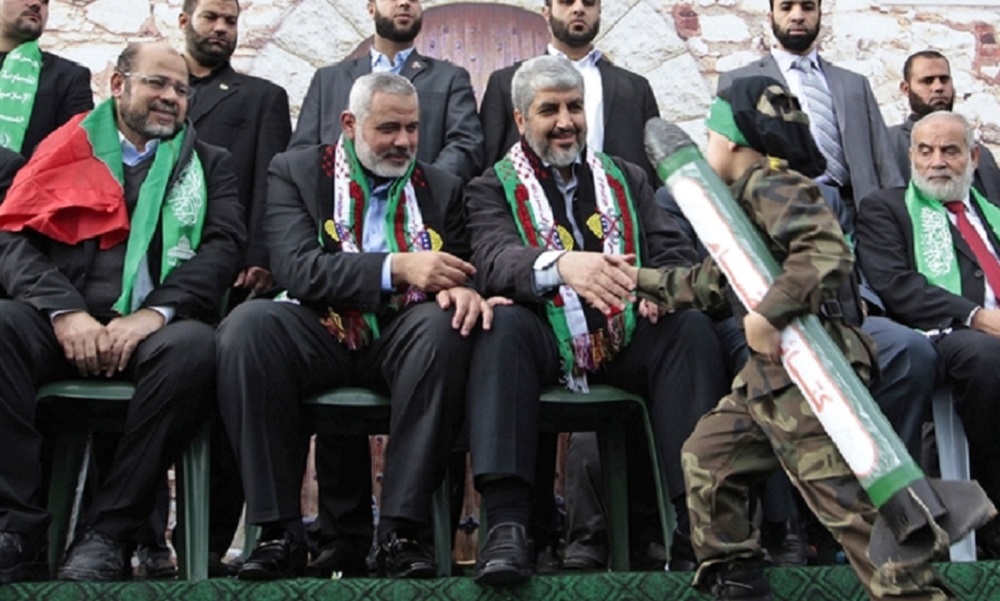America’s War on Words
The Bush administration has launched a new “outreach” policy reflecting it’s reluctance to discuss jihadism in public. This time, it has targeted language. We are no longer at war with “jihadism”. Rather, we are engaged in a war against “extremism”.
In a document titled: “Words that Work and Words that Don’t: A Guide for Counter-Terrorism Communication” released in March 2008, Federal agencies including the State Department, the Department of Homeland Security and the National Counter Terrorism Center will now be issued instructions on how not to describe “jihadists”, or the “mujahedeen”, or to use any references relating to Islam, Islamic theology or Muslims in the context of our current war. Nor are these the only words to be struck from the government’s political lexicon. Words and phrases like “al Qaeda movement”, “Salafi”, “Wahhabist”, “Sufi”, “ummah” (the Muslim world), “Islamic terrorist”, “Islamist”, “holy warrior” and even “caliphate” are also to be removed from diplomatic discourse. On the advice of unidentified Muslim consultants, the word “liberty” was also dropped in favor of “progress.” At the same time, the U.K. Home Secretary dropped the term “Islamic terrorism” and instead instituted “anti-Islamic activity.” In effect, we are at war with an enemy we cannot name for fear of offending people of the same religion, an enemy who cannot wait to slit the throats of your children if they have the opportunity to do so.
The erroneous rationale given is that these terms promote support for “extremism” among Arab and Muslim audiences by providing religious credibility to “extremists” while offending moderate Muslims. The directive states that the term “jihad” tends to “glamorize terrorism, imbues terrorists with religious authority they do not have and damages relations with Muslims around the world”. The memo says the advice is not binding and does not apply to official policy papers, but should be used as a guide for conversations with Muslims and media.
This directive mirrors identical policy guidelines distributed to British and European Union diplomats last year to better explain the current war to Muslim communities there (as if they don’t already get it). Last summer, Prime Minister Gordon Brown prohibited his ministers from using the word “Muslim” in connection with terrorism. And in January this year, Home Secretary Jacqui Smith went even further, announcing that the British Government had dropped the terms “War on Terror” and “Islamic extremism” altogether. Civil servants now have to refer to Islamic terrorists merely as “criminals” without any reference to Islam in order to “prevent the glorification and incitement of terrorism”. Bat Ye’or would call these actions just another manifestation of creeping British “d’himmitude” (infidel submission to Islam), but the fact that the US government is now following the British lead (where fear under the guise of “outreach” is the motivating factor) is disturbing.
There are billions of Muslims and literally thousands of Islamic scholars and organizations who believe that democracy and Islam are indeed compatible; who reject violence in pursuit of Islam’s goals; who condemn terrorism; who advocate equal rights for minorities and women; and who accept pluralism within Islam. The jihadi Salafists, however, have externalized jihad and interpret this struggle as a holy war to be waged against infidels and apostates until a global Islamic caliphate has been established under shari’a law. These two distinctly different interpretations of the Muslim holy books affect the vast majority of the world’s 1.4 billion Muslims as much as they affect non-Muslims. But rather than clarify the distinction between these two divergent schools of interpretation and define jihadi Salafism as the enemy, the State Department, the Department of Homeland Security and the National Counter Terrorism Center have chosen to sanitize their diplomatic jargon in the name of “Muslim outreach”.
It’s a fair guess that the vast majority of the global Muslim community understands quite well that a segment of their co-religionists are responsible for a considerable amount of terrorism around the globe, so they don’t need us to explain it to them, especially in generic terms which make us look foolish. Nor is anything we say going to affect jihadist credibility amongst Muslims. The argument that: “We must carefully avoid giving bin Laden and other al-Qaeda leaders the legitimacy they crave…………by characterizing them as religious figures, or in terms that may make them seem to be noble in the eyes of some” is ridiculous. Few if any in the Muslim world care what non-Muslims think about jihadist groups like al Qaeda, so the argument that we have to be careful in our language so as not to give bin Laden credibility and legitimacy in the eyes of Muslims is a non-starter.
At least the 9/11 Commission had the wisdom to define the enemy without all the political correctness we see in this directive. As Jeffrey Imm points out in the Counter Terrorism Blog:
“The 9/11 Commission Report uses the term “jihad” in referencing the enemy 79 times and specifically defines “jihad” as a “holy war” executed by Osama Bin Laden and his compatriots (Section 2.3, Paragraph #302 on page 55), as well as defining “mujahideen” as “holy warriors” (Paragraph #302, same page). The 9/11 Commission Report provides the definition of “Islamist terrorism” as being based on the ideology of “Islamism” (Notes, Part 12, Note 3: “Islamism”, page 562)? …Does the NCTC now claim that the 9/11 Commission Report “legitimizes” the actions of Jihadists?”
The only reasonable explanation behind this policy (both here and in Britain) is that these directives represent an emerging trend in our federal security, intelligence and legal agencies (DOJ, DHS, CIA and FBI) that we can somehow better protect America and American foreign interests and reduce the level of violence by engaging in “outreach” with pro-jihadist organizations or countries whether it be Iran in the Middle East or representatives of the Muslim Brotherhood in the US. In effect, jihadist ideologies no longer concern our State Department provided there is a reduction in the level of violence that such groups promote. It amounts to surrender to the forces of global Islam with the only qualification being that jihadists conduct themselves peacefully so as to reduce the necessity of future American military interventions. Part of this policy holds that the language used to describe jihadism actually incites it, so if we change our language, we can reduce the problem. But this “problem” with jihadism is not and never has been one of linguistics, and it will not disappear.
This “outreach” approach is flawed because it ignores the totalitarian ideology of jihadist Islam, the central tenet of which remains conquest, submission and the establishment of a global Islamic caliphate (another term US diplomats will no longer be allowed to use). This new War on Words is just another manifestation of our failed strategy in dealing with global jihadism. Perhaps we should cease using the words “freedom” or “democracy” since these concepts are offensive to Shari’a law, and start setting up no-pork aisles in our supermarkets, or adopt such British “outreach” practices as banning piggybanks, pulling Holocaust education from school curricula and, in some cases, changing the names of pig-centered children’s classics like “The Three Little Pigs” to avoid offending Muslim sensitivities.
An Administration that continues to transfer hundreds of millions of dollars to the Palestinian Authority and billions of petro-dollars to our enemies should be more concerned with legitimizing jihadists by funding them than they are about nomenclature.



